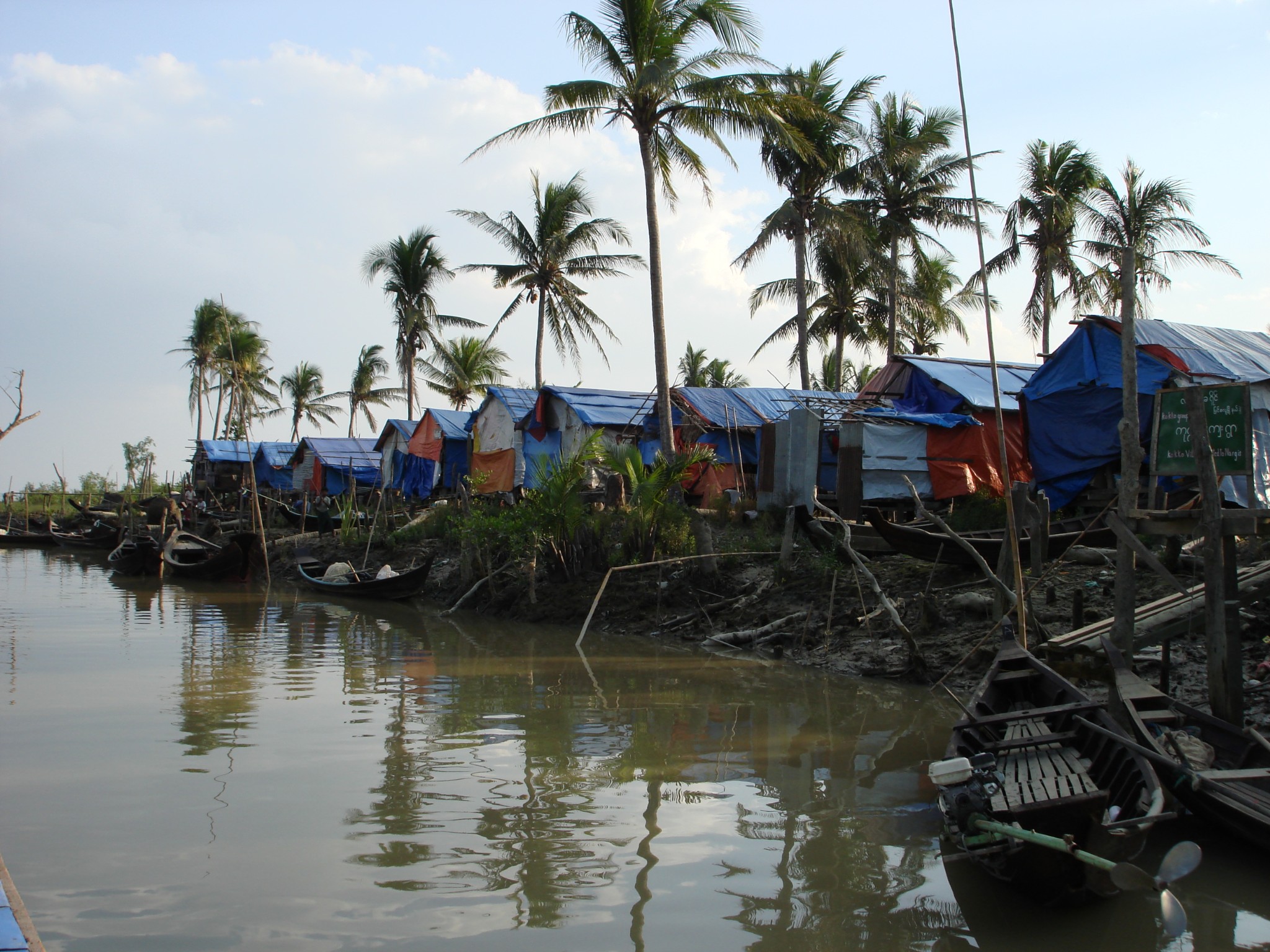
Vulnerability to Climate Change and Gender-Based Violence in the Rohingya Refugee Crisis
Myanmar’s topography, economy, and developmental status render the population particularly vulnerable to the impacts of climate change. The 2016 Global Climate Risk Index ranked Myanmar 2nd out of 187 countries, due to its vulnerability to several climate-induced disasters, such as floods, cyclones, earthquakes, landslides and droughts. The country’s vulnerability to climate-induced disasters also makes its government fragile. In turn, this fragility has fueled the Rohingya refugee crisis.
In 2008, Cyclone Nargis travelled through the Irrawaddy Delta, resulting in at least 140,000 deaths, 4.3 million displaced, and a 12% loss in Myanmar’s GDP. Myanmar’s paranoid military government prevented international workers from providing assistance for four days following, likely increasing its human death toll. Buddhist monks stepped up to organize material relief campaigns and publicly condemned the government for failing to improve conditions for the people suffering as a result of Nargis.
Within a few years, this military government lost control to a civilian government in the country’s first election in decades. Then, in September 2019, hundreds of protesters marched in Myanmar as part of the Global Climate Strike, calling on their government to end death and displacement due to climate-induced disasters.
Myanmar’s government recognizes that climate-induced disasters demand their limited resources and attention, and ultimately hinder work on long-term development goals that foster growth and stability. For instance, the government’s sustainable development plan states:
The [government of Myanmar] recognises that the natural environment is the foundation upon which Myanmar’s social, cultural and economic development may be sustained.
One unfortunate consequence of the government’s inability to balance multiple stability priorities is the Rohingya refugee crisis. The Rohingya are one of many ethnic minorities in Myanmar. Although they claim to be descendants of Arab traders and other groups that have traditionally lived in the region, the government of Myanmar refuses to recognize the Rohingya as a people or as citizens. Instead, the government classifies the Rohingya as undocumented immigrants from Bangladesh.
Large numbers of the Rohingya have been forcibly displaced by what the United Nations defines as an ‘ethnic cleansing,’ a coercive or forceful act, (e.g. murder, torture, rape, deliberate military attack) orchestrated by one ethnic or religious group to remove a population of another ethnic or religious group from an area.
The overwhelmed government has failed to hold government and ethnic armed forces accountable for law-of-war violations against Rohingya women and girls, such as sexual violence. Furthermore, women and girls become even more vulnerable when the men in their families and communities leave to fight.
To escape the danger, many have fled to neighboring Bangladesh, with significant migrant waves following violent conflicts throughout the past five decades. Until Myanmar becomes more politically stable, Rohingya refugees will continue to flee across the border to Bangladesh, which is also dealing with climate-induced threats to stability.
Bangladesh is situated at the head of the Bay of Bengal and the largest river delta on the planet; one-quarter of Bangladesh is less than seven feet above sea level. Melting glaciers in the Himalayas, coupled with more frequent and stronger cyclones and storm surges, have dramatically pushed water up the Delta’s rivers and caused serious flooding.
Rising sea levels and coastal erosion threaten Bangladesh’s agriculture-based economy. The Intergovernmental Panel on Climate Change projects that Bangladesh will lose 30% of food production by 2050. As a result, much of the rural-dwelling majority is likely to be internally displaced, moving to urban centers en masse, where they cannot utilize their agricultural skills for income, putting increased strain on government social services.
The situation in Myanmar and Bangladesh reflects the growing consensus among policymakers that climate change poses a threat to political stability, especially in already fragile states. Climate change strains financial and natural resources, thereby hindering a regime’s ability to govern, maintain power, and prevent conflict. This insecurity disproportionately impacts women and girls, who tend to handle food and water collection responsibilities; have fewer resources to adapt to urban environments if displaced from their communities; and are vulnerable to gender-based violence in conflict situations.





